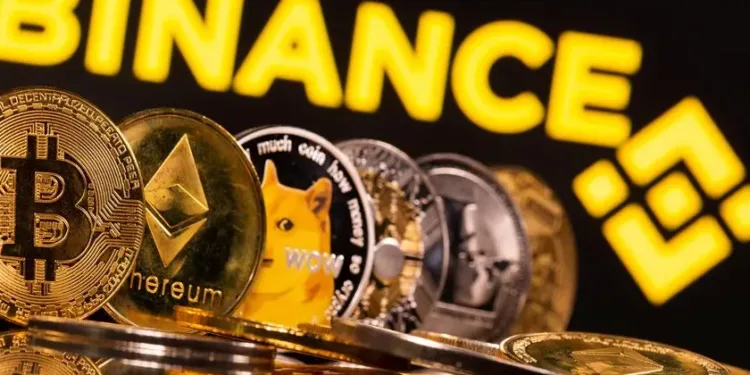Binance executives, Tigran Gambaryan and Nadeem Anjarwalla, who were arrested in Nigeria, are still detained two weeks after they were taken into custody.
The Nigerian authorities have continued to detain two executives, prolonging their incarceration to two weeks and withholding their passports.
Tigran Gambaryan, a former cryptocurrency-focused United States federal agent and current head of Binance’s criminal investigation team, along with Nadeem Anjarwalla, Binance’s Kenya-based regional manager for Africa, traveled to Nigeria on Sunday, February 25, 2024, to address a dispute regarding Binance’s alleged unlawful operations in the country.
Fintech Telex learnt that since their arrest, the families of the detained executives have not received information from Nigerian prosecutors regarding any criminal charges they may face.
Yuki, Gambaryan’s wife, expressed uncertainty about her husband’s situation and return timeline, stating, “There’s no definite answer for anything: how he’s doing, what’s going to happen to him, when he’s coming back.”
A Binance spokesperson confirmed that Gambaryan and Anjarwalla remain detained as of Monday, March 12, stating that the company is collaborating with Nigerian authorities to ensure their safe return.
READ ALSO: American University Confers Doctorate Degree On Enabulele
Despite the situation, Binance representatives, however, expressed confidence in a swift resolution and highlighted the professionalism of the detained executives.
In the course of their detention, Gambaryan was reportedly visited by a U.S. State Department official, while Anjarwalla received a visit from a representative of the UK foreign office. However, Nigerian guards were present during these meetings, preventing private communication between the Binance executives and their visitors.
Why Nigerian govt clamp down on Binance
Nigerian officials accused Binance of contributing to the devaluation of the naira and facilitating illegal financial activities. This led them to block access to Binance and other cryptocurrency exchanges through telecom providers.
In what appeared to be a swift reaction to the allegations, Binance executives traveled to Nigeria to address the concerns, and upon their arrival, they got arrested and had their passports seized.
However, tensions remained high, and on Tuesday, March 5, Binance announced its complete withdrawal from the Nigerian market. This resulted in the suspension of naira withdrawals three days later, and the subsequent removal of all naira trading pairs. Also, peer-to-peer trading with the Nigerian currency was disabled on the Binance platform.
Meanwhile, talks between Binance, the world’s leading crypto exchange, and Nigeria, Africa’s biggest crypto market, have taken a new turn. The new sticking point? Nigeria’s demand for data on Binance’s top Nigerian users and their transaction history. Fintech Telex understands that this request for sensitive information is a major hurdle in negotiations, which raises concerns about user privacy and potentially derailing efforts to find a solution.
Oduwacoin creator, Enabulele fumes at clampdown on Binance
Bright Enabulele, the creator of Oduwacoin (Africa’s first indigenous cryptocurrency), strongly criticized the Nigerian government’s crackdown on Binance.
Enabulele voiced his disapproval of the government’s actions, stating that it not only represents a missed opportunity but also has the potential to worsen the country’s existing economic challenges. He emphasized the importance of a measured approach, advocating for robust Know Your Customer (KYC) procedures and well-crafted regulations to address potential concerns about misuse, rather than resorting to a complete ban.
In a statement provided to journalists, Enabulele highlighted that while addressing the misuse of cryptocurrency platforms is understandable, a blanket ban on cryptocurrencies would significantly setback Nigeria’s economic well-being. He argued that implementing stringent KYC procedures and appropriate regulations would be more effective in tackling concerns about money laundering or illegal activity while still allowing Nigerians to benefit from the innovative technology.
Expressing his concern, Enabulele emphasized that the clampdown on Binance would deprive Nigerians of a crucial tool to manage the country’s persistently high inflation. He, therefore, urged the government to reconsider its approach and prioritize measures that would support economic growth and innovation in the cryptocurrency sector.










